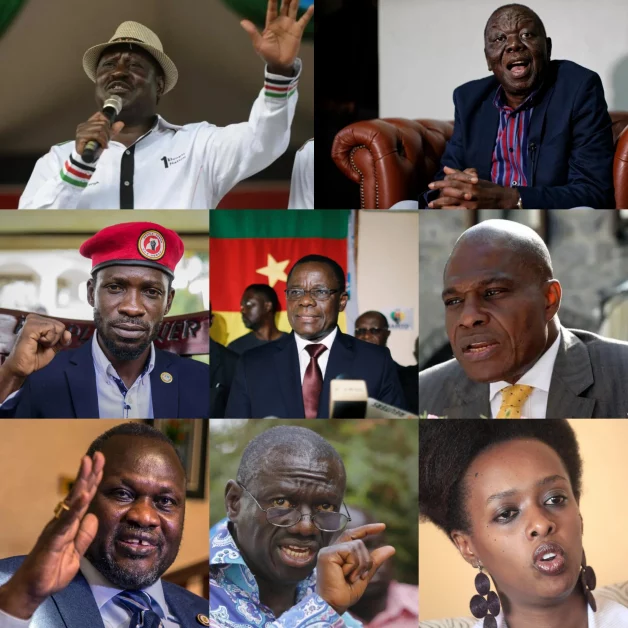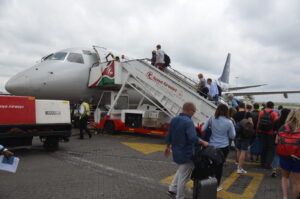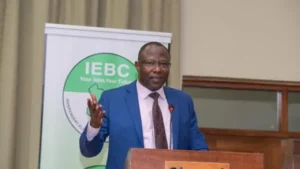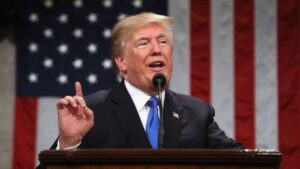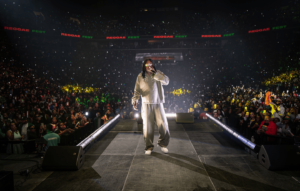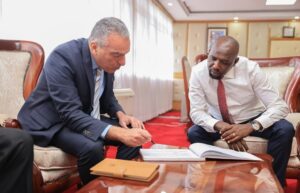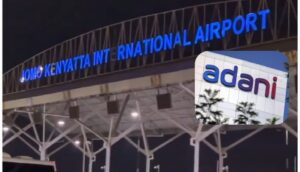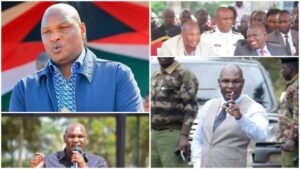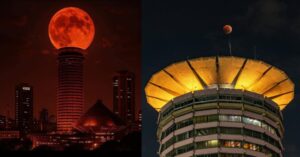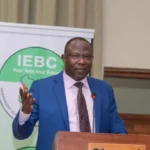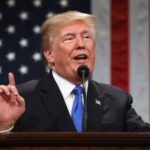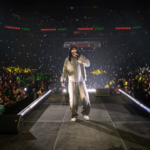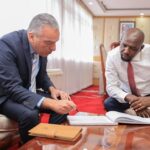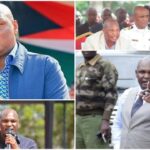There is a striking resemblance in the pattern and sequence of events that have denied these leaders a chance at the top seat to rule in their respective countries.
However, few of these leaders continue their relentless pursuit to be head of state and realise their Presidential aspirations, despite the odds stacked against them.
Here is a list of the most effective and strong opposition leaders in Africa yet to taste presidential power.
8. Dr Riek Machar Teny Dhurgon
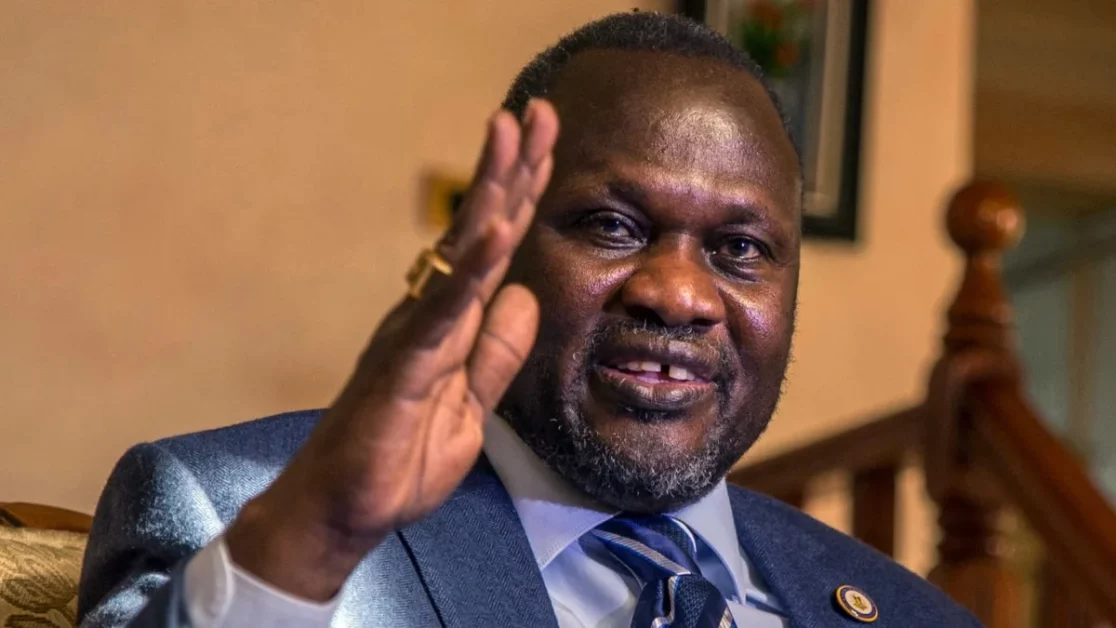
Machar is a South Sudanese politician who serves as the First Vice President of South Sudan.
In February 2020, Machar was resworn in as vice president following a peace agreement with Salva Kiir, the current President of South Sudan.
He is also the head of the rebel faction known as SPLM-IO (Sudan People’s Liberation Movement-In Opposition) which was founded in 2014 following the 2013 war outbreak and has been historically in opposition to Kiir. Between April and July 2016 Machar served as the First Vice President of South Sudan.
Dr Riek Machar would take up the post of First Vice President when the new unity government was formed, initially in February 2019, but later delayed until February 2020.
7. Martin Madidi Fayulu
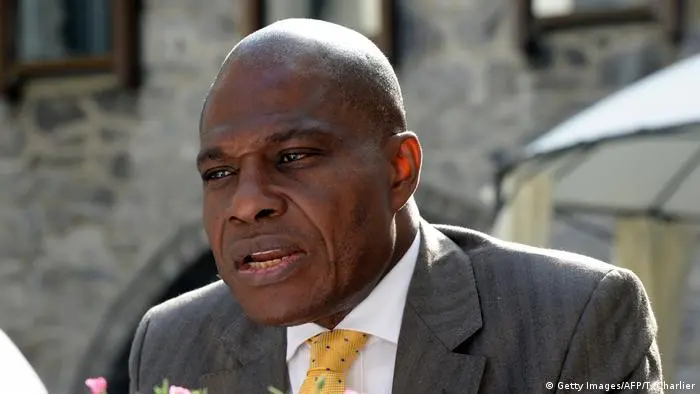
Martin Madidi Fayulu (born 21 November 1956) is a businessman and lawmaker from the Democratic Republic of the Congo.
He is the leader of the Engagement for Citizenship and Development party.
On 11 November 2018, he was chosen by seven opposition leaders to be their joint presidential candidate in the 2018 Democratic Republic of the Congo general election.
However, within 24 hours, Félix Antoine Tshisekedi Tshilombo, the eventual winner of the 2018 presidential election, and Vital Kamerhe, the other oppositional candidate, rescinded their endorsement of his candidacy and formed their own pact with Tshisekedi as a candidate.
Félix Tshisekedi was declared the winner of the December 2018 election, despite election observers’ belief that Fayulu had won the vote, in what was seen by Fayulu and his supporters as a deal between Tshisekedi and outgoing President Joseph Kabila.
Fayulu challenged the result in the DRC’s Constitutional Court, which has been criticized for being staffed primarily by Kabila appointees, and thus by late January 2019 the court ruled that Tshisekedi was the rightful winner and he was sworn in as President.
He has continued to remain active in politics since the election, continuing to claim that he was the rightful winner.
6. Robert Kyagulanyi Ssentamu
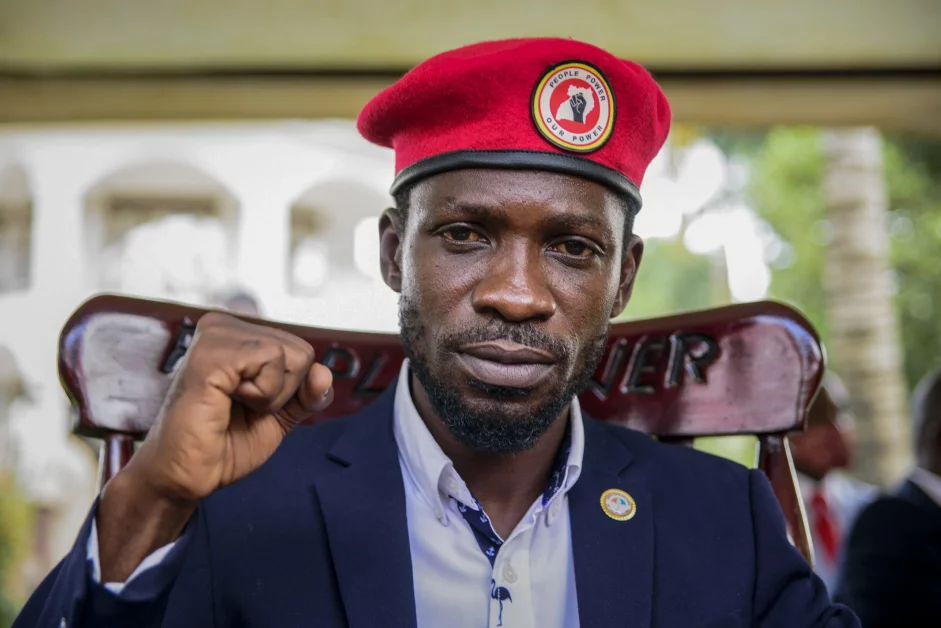
Robert Kyagulanyi Ssentamu, known by his stage name Bobi Wine, is a Ugandan politician, singer, and actor.
He is a former Member of Parliament for Kyadondo County East constituency in Wakiso District, in Uganda’s Central Region.
He also leads the National Unity Platform political party.
In June 2019, he announced his candidacy for the 2021 Ugandan presidential election.
He participated in the 2021 election where he lost to the incumbent Yoweri Kaguta Museveni, a result which Kyagulanyi and a large section of the public strongly disputed.
On December 14, 2021, he was placed under house arrest by the Government of Uganda.
5. Diane Shima Rwigara
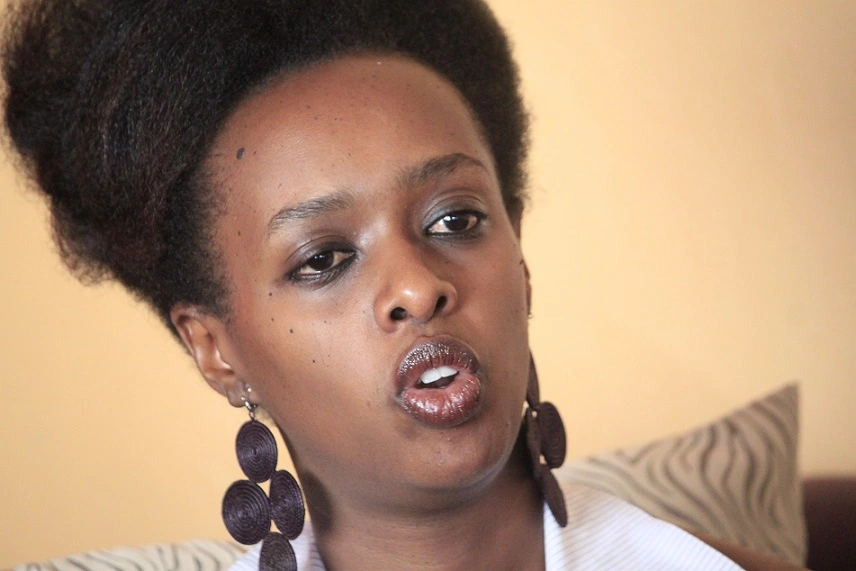
Diane Shima Rwigara is a Rwandan businesswoman and accountant who stood as an independent candidate in the 2017 Rwandan presidential election.
Rwigara was charged on 23 September 2017, alongside her mother and four other defendants, with “inciting insurrection” among other counts, but was acquitted along with her mother on 6 December 2018.
Rwigara was killed in a car collision on 4 February 2015 in Gacuriro, Kigali.
Her family believes the accident was politically motivated murder.
The police said he was instantly killed when the Mercedez-Benz car he was driving was in a head-on collision with a heavy truck.
4. Maurice Kamto
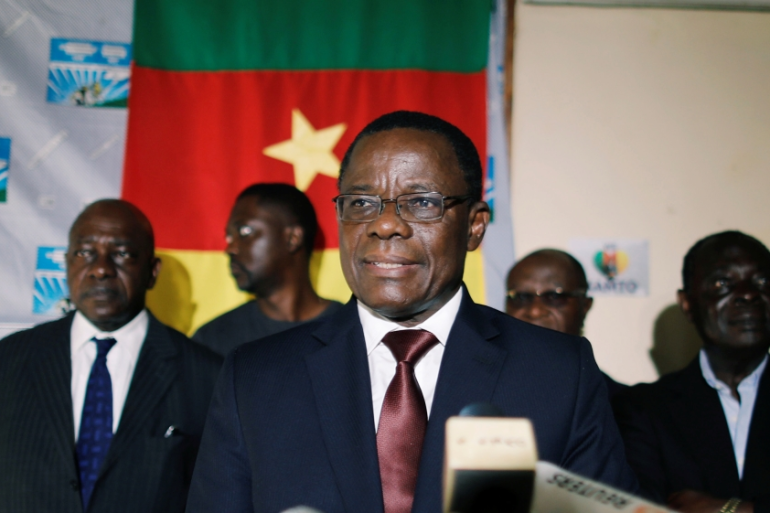
Kamto is a Cameroonian politician, professor, and barrister. He is one of the founders of the Cameroon Renaissance Movement (MRC).
He was a member of the International Law Commission of the United Nations from 1999 to 2016.
He was one of the two main agents, the other one being Professor Peter Ntamark in the Cameroonian delegation that successfully led the negotiations to resolve the matter of Bakassi, a peninsula disputed with neighbouring Nigeria.
His decisive contribution helped him to be appointed as Minister-Delegate to the Minister of Justice in 2004.
He resigned from the government in November 2011.
After resigning from the government, Kamto formed a new opposition party, the Cameroon Renaissance Movement (MRC). A kick-off meeting of his party merging multiple parties was prohibited by the government on 13 August 2012.
In the 2018 Cameroonian presidential election, Kamto ran as a presidential candidate for the MRC.
Incumbent President Paul Biya is said to have won, in spite of a fiercely contested result process.
Indeed, the entire country watched a strong defence from Kamto’s group of lawyers who pointed out the partiality of The Supreme Court of Cameroon which is composed of Biya’s CPDM party members.
Kamto was declared runner-up by the Court and said to have received 14% of the votes.
Kamto challenged the official results and declared himself the winner of the election. His supporters held small-scale protests since then.
On 26 January 2019, Maurice Kamto and 200 of his supporters were arrested and locked up in Kondengui’s maximum security prison in Yaounde, Cameroon.
He was freed on 5 October 2019 along with other leaders of his party, a day after the end of the Major National Dialogue, following an official release by President Biya.
In October 2021, Maurice Kamto declared “I am not sure that waiting after Biya will lead to a change in Cameroon”. He is perfectly bilingual.
3. Warren Kizza Besigye Kifefe
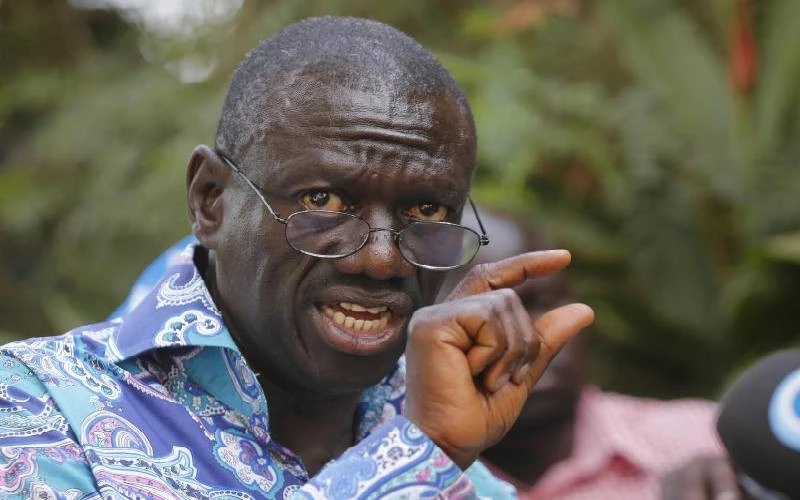
Colonel. Dr Kizza Besigye, is a Ugandan physician, politician, and former military officer in the Uganda People’s Defence Force (UPDF).
He served as the opposition leader under the Forum for Democratic Change (FDC) political party.
He became an unsuccessful Ugandan Presidential candidate after contesting four times that is; 2001, 2006, 2011, and 2016.
He lost all of them to the incumbent Yoweri Museveni, who has been President of Uganda since 26 January 1986.
The results of the 2006 elections were contested in court, where the court found massive rigging and disenfranchisement.
He allowed an early internal FDC election for a successor president, which took place on 24 November 2012.
2. Morgan Richard Tsvangirai
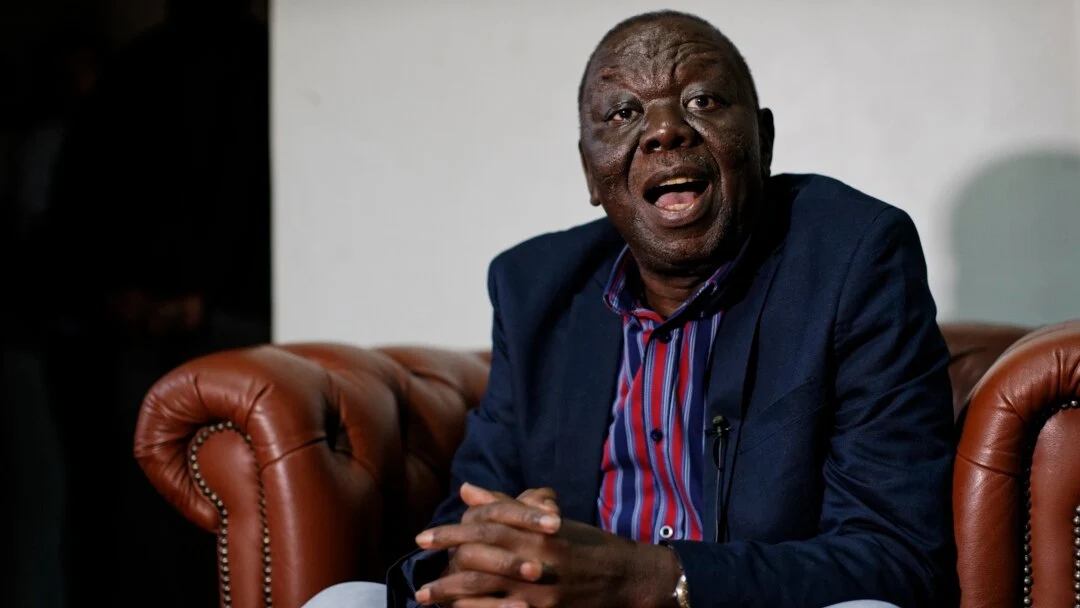
Tsvangirai was a Zimbabwean politician who was the Prime Minister of Zimbabwe from 2009 to 2013.
Like Raila Odinga, Morgan Tsvangirai was an opposition leader who challenged the then Zimbabwe President Robert Mugabe.
He served as the leader of the Movement for Democratic Change party, and later the Movement for Democratic Change – Tsvangirai (MDC–T).
Tsvangirai was the MDC candidate in the controversial 2002 presidential election, losing to Mugabe.
He later contested the first round of the 2008 presidential election as the MDC-T candidate, taking 47.8% of the vote according to official results, placing him ahead of Mugabe, who received 43.2%.
He claimed to have won a majority and said that the results could have been altered in the month between the election and the reporting of official results.
Tsvangirai initially planned to run in the second round against Mugabe, but withdrew shortly before it was held, arguing that the election would not be free and fair due to widespread violence and intimidation by government supporters that led to the deaths of 200 people.
He sustained non-life-threatening injuries in a car crash on 6 March 2009 when heading towards his rural home in Buhera.
His first wife, Susan Tsvangirai, was killed in the head-on collision.
As the 2017 Zimbabwean coup d’état occurred, Tsvangirai asked Mugabe to step down.
He hoped that an all-inclusive stakeholders’ meeting to chart the country’s future and an internationally supervised process for the forthcoming elections would create a process that would take the country towards a legitimate regime.
On 14 February 2018, Tsvangirai died at the age of 65 after reportedly suffering from colorectal cancer.
1. Raila Amolo Odinga
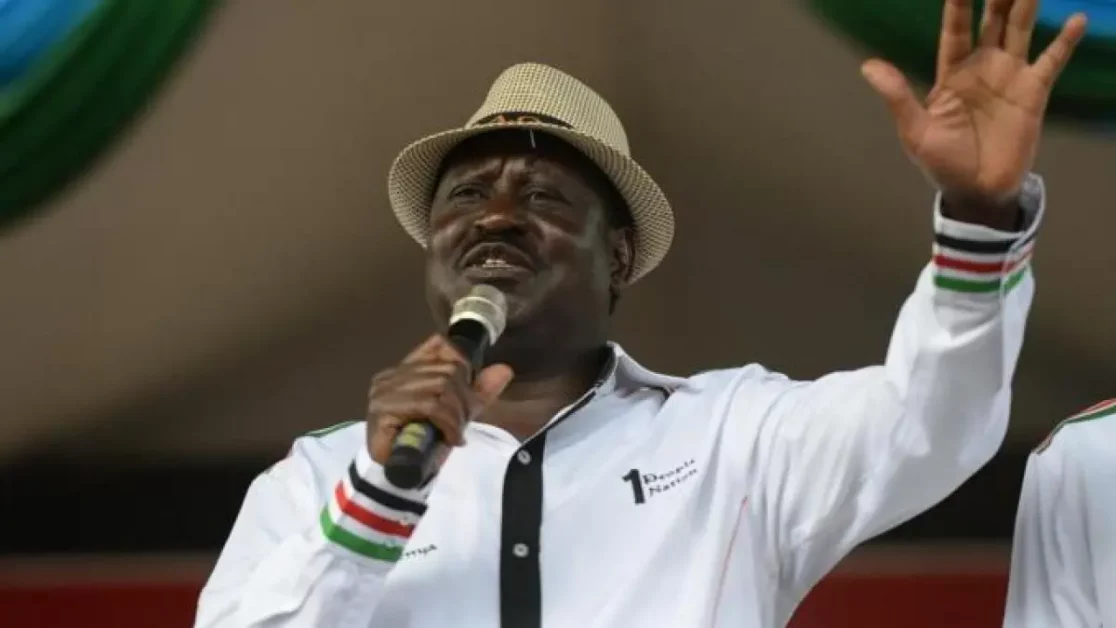
Odinga is a well-known Kenyan politician who has the ability to mobilize millions of people at once.
Odinga is considered a political enigma due to his tendency to support the government while also leading the opposition.
Subscribe to our YouTube Channel at Switch TV.
Odinga has unsuccessfully stood for election as President of Kenya five times, although in each of these elections he has contested the result because of allegations of election fraud.
In 1997, he finished third as the candidate of the National Development Party (NDP).
In 2007, he ran again for the presidency under his Orange Democratic Movement party (ODM) and lost to Mwai Kibaki.
In 2013, 2017, and 2022, Odinga was the runner-up as a candidate for the Coalition for Reforms and Democracy (CORD), National Super Alliance (NASA), and Azimio la Umoja-One Kenya Coalition Party respectively.
Meanwhile, Odinga served as Langáta Member of Parliament, and from 2008-2013, he served as the second Prime Minister of Kenya after the late first President, Jomo Kenyatta.
Mr Odinga has a passionate following, and his adoring fans have nicknamed him “Baba” (Father), “Agwambo” (Act of God), and “Tinga” (Tractor) – drawn from his party symbol in the 1997 elections.


